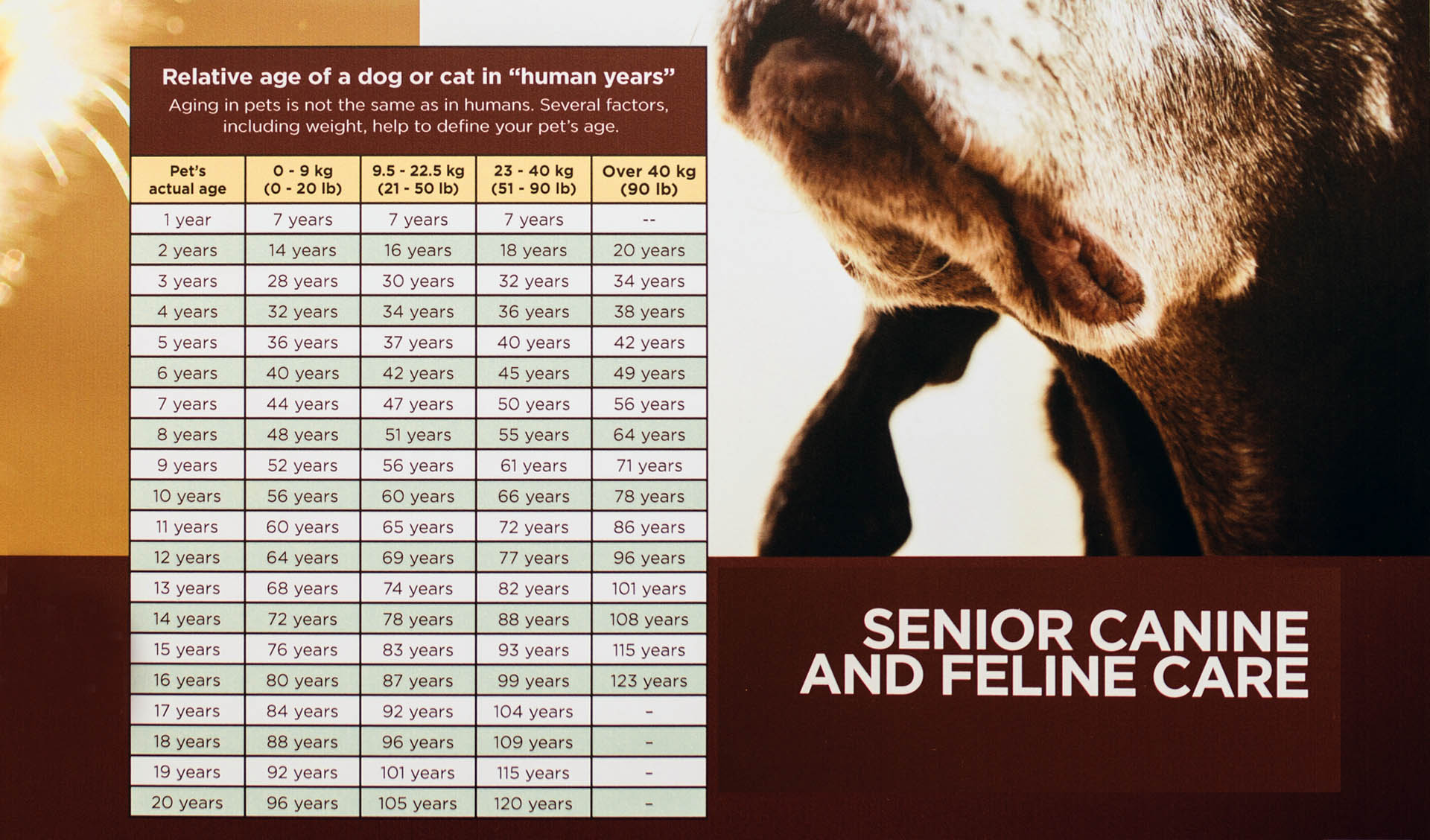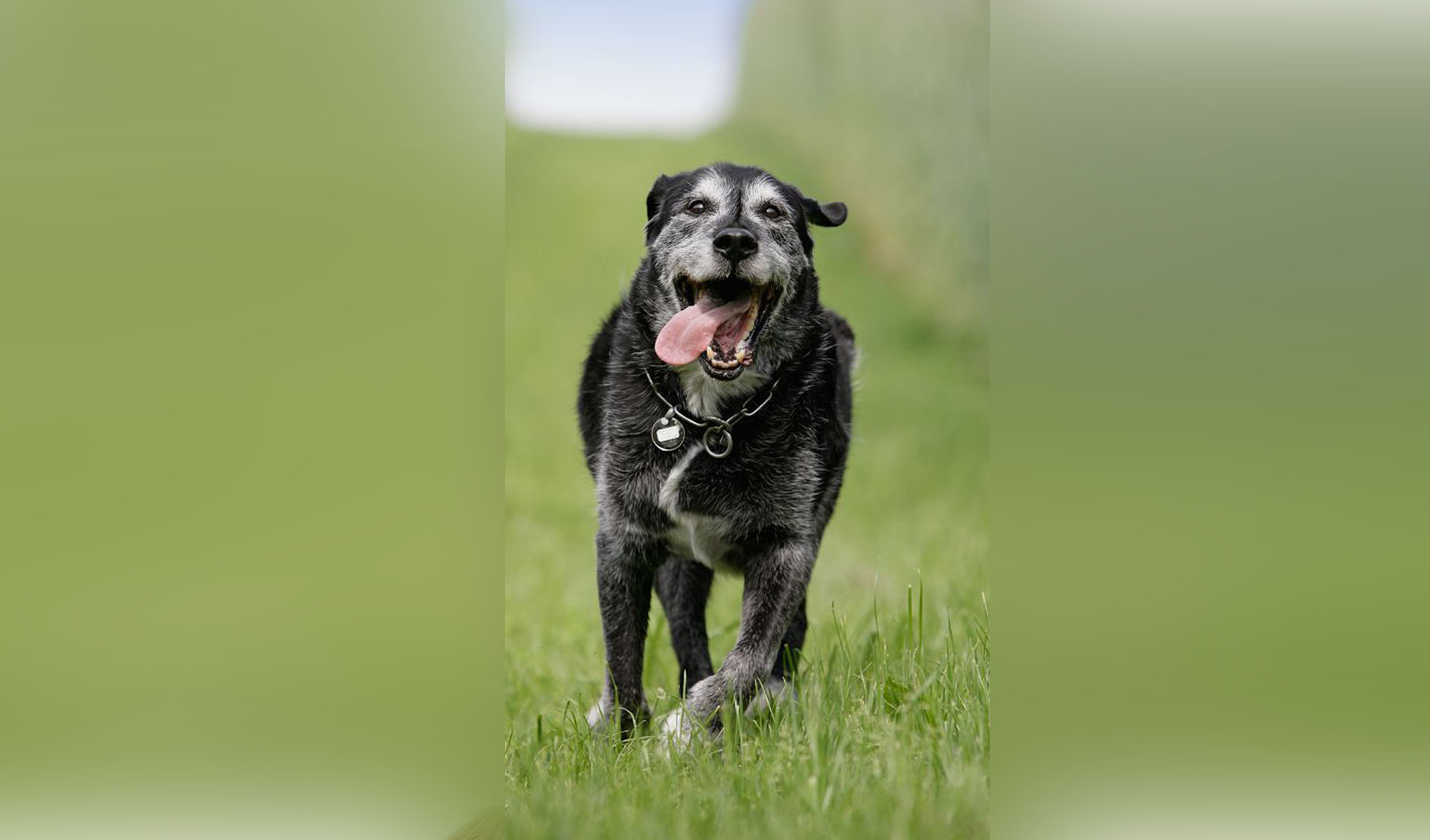Our canine companions age a lot faster than we do. Over time, a lot of changes can happen to their bodies – these changes can occur either gradually or suddenly. This is why it is important to have routine checkups for your senior dog.
Normal changes to the canine body include the coat turning grey and loss of hearing and vision. Nuclear sclerosis is a common condition in older animal where their eyes exhibit a bluish, hazy tint caused by the thickening and hardening of the ocular lens. This condition will not affect vision; however, cataracts will cause vision loss and should be assessed by your veterinarian.
Another common side effect of aging is incontinence. Our pets can be embarrassed by this and should never be scolded. Fortunately, there are treatment options you can discuss with your veterinarian to help control and try eliminate accidents.
Arthritis is a common disease for older dogs. Just like us, the cartilage in the dog’s joints begins to deteriorate causing painful and debilitating inflammation known as arthritis. Although there is no cure, there are preventative treatments such as pet specific glucosamine to help preserve the joints as well as treatments to ease and control the pain associated.
Many senior dogs suffer from dental disease. Tartar and bacteria build up on the teeth causing gingivitis, tooth decay, and infection. If left untreated, dental disease can affect other organs such as the kidneys, heart, liver and pancreas. Older pets have a weakened immune system making it even more important to address this issue. A professional dental cleaning might be required to keep your dog in tip top shape. See the following blog for more information: The Importance of Professional Dental Cleaning.
As dogs age, their metabolic rate slows down leading to a decreased activity level and, as a result, to muscle loss. Senior dogs also have a harder time regulating their body temperature making it important to monitor them during hot summer days or cold winter nights. Weight gain also becomes an issue as older pets require fewer calories. As their dietary needs change, they will benefit from proper protein and nutrient levels. Older dogs should be switched to a senior diet to help ensure a healthy weight is maintained and their nutritional needs are met. The veterinary exclusive Royal Canin Mature Consult diet, for example, contains added beneficial ingredients and supplements to support cognitive function, cardiac health, and to slow the progression of kidney disease, maintain muscle, and decrease tartar build up.
With age, dogs also tend to develop lumps and masses. These masses can be benign or cancerous. It is important to always check your pet for new developing masses and point them out to your veterinarian to make sure they are not cancerous.
Blood work and urinalysis becomes an important part of your pet’s annual checkup. It will give a better understanding of the changes happening to your pet. These tests are used to pick up some of the most common senior health issues such as hypothyroidism, diabetes, kidney failure and cancer. Detecting these diseases in their early development gives your pet the best chance for treatment and survival. Talk to your veterinarian at Centrepointe Animal Hospital about your senior dog.


